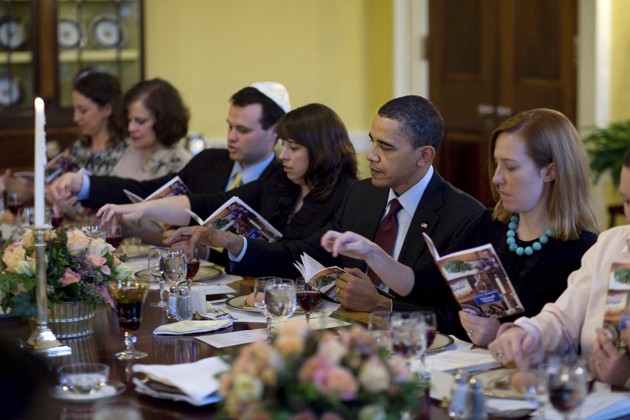Sometimes Diplomacy Is Just a Big Load of Carp
One email sent by Hillary Clinton, from the pile of 7,000 released on Monday night by the State Department, really stood out:

“Gefilte fish,” read its subject line. And its body, simply: “Where are we on this?”
The email went to Richard Verma, the department’s liaison to Congress, and Jake Sullivan, Clinton’s deputy chief of staff. They were, as it turns out, dealing with a genuine diplomatic crisis.
It began with an invasive species—the Asian carp—threatening the waterways and lakes of the Midwest. One Illinois company, Schafer Fisheries, led the way in turning the nuisance fish into a source of profits and jobs, in the process helping to keep its numbers in check. By 2010, it was processing 12 million pounds of carp each year. But American consumers wouldn’t buy it, leaving Schafer to find markets abroad.
It dispatched millions of pounds of fish to China, Japan, and Europe. And in the winter of 2010, it processed 198 tons of frozen carp to send to Israel as gefilte fish, a delicacy particularly popular at Passover meals. When the first two containers arrived, though, they got stuck on the piers in the port of Haifa. They faced a 120 percent tariff, because they fell outside the bounds of a bilateral free-trade agreement. Don Manzullo, an Illinois congressman at the time, begged for intervention, to save Passover in Israel—and jobs back home. “My district already has 25 percent unemployment, and Israel’s going to jack it up to 30 percent,” he told Israeli Ambassador Michael Oren.
When Clinton appeared before the House Foreign Affairs Committee, Manzullo seized the chance to grill her. It “sounds to me like one of those issues that should rise to the highest levels of our government,” said Clinton. “I will take that mission on.”
Greeting then-Israeli Defense Minister Ehud Barak the next day, Clinton said:
We have so many serious matters to discuss together, but there is one matter that I have to raise that I was asked about in a congressional hearing yesterday, and that is trying to get nine containers of gefilte fish from the processing plant in Illinois to Israel in time for Passover. So these are intractable problems; this one we might be able to solve.
Barak, for his part, said he was looking forward to “fruitful discussion of all issues, including the gefilte fish.”
With Clinton pressing for a solution, the frosty dispute thawed even faster than the fish. Oren helped broker a deal. The tariff was waived, and the carp unloaded. And at the Passover seder that year, Israelis dined on carp from Illinois, as a president from Illinois enjoyed gefilte fish in the White House.
